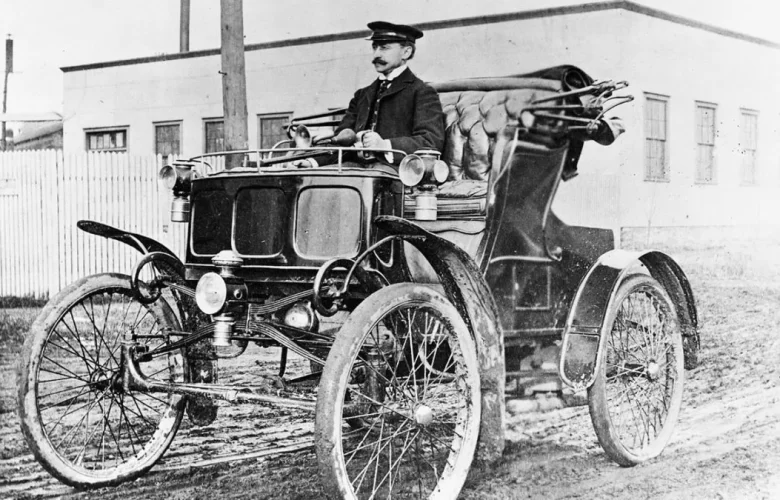Speeding is a prevalent issue that affects road safety significantly. A lead foot on the accelerator might seem harmless when in a rush, but the truth is it jeopardizes not only the driver’s life, but also the safety of other road users. According to the National Highway Traffic Safety Association, in 2019, speeding was a contributing factor in 26% of all traffic fatalities. Exceeding the speed limits doesn’t only risk accidents and lives, it can also result in a costly speeding ticket.
With speeding being such a common occurrence, it’s important to know how to handle the aftermath of receiving a speeding ticket, especially if it’s your first one. The objective of this article is to guide first-timers through the process of handling a speeding ticket – from getting pulled over to facing the courtroom. Not only will this information equip readers with the knowledge to deal with this situation calmly, but it will also underline the importance of respecting speed limits to prevent getting future tickets and promote safer driving habits.
Table of Contents
Speeding Tickets
A speeding ticket is a notice issued by a law enforcement officer to a motorist or other road user indicating that the individual has violated traffic laws, specifically speed limits. This citation or ticket represents a penalty that includes a fine and points on the driver’s record. Depending on the severity of the offense, you may also get your driving privileges suspended. Some individuals choose to consult with a traffic ticket lawyer for legal advice and representation, particularly for severe or repeat offenses.
The Issuance and Cost of Speeding Tickets
Speeding tickets are typically issued by traffic officers on the spot after a motorist has been pulled over for exceeding the speed limit. The cost of a speeding ticket can vary greatly depending on the state, how much you exceeded the speed limit, and your driving history. On average, a speeding ticket in the U.S. can range from $50 to $500. Aside from the financial penalty, speeding tickets can have other significant consequences. These may include increased insurance rates, points on your driving record, and possible suspension of your driver’s license depending on the seriousness and frequency of the offense.
What to Do When You Get Pulled Over
When you see those flashing blue lights in your rear-view mirror, stay calm and pull over to the side of the road as safely and quickly as you can. After stopping, turn off your engine, roll down your window, and place your hands on the steering wheel where they can be seen. Avoid reaching for anything until the officer has approached and requested specific documents such as your driver’s license, vehicle registration, and proof of insurance.
Interactions and Rights to Exercise During the Traffic Stop
When interacting with the police officer, it is essential to be polite and cooperative. Answer the officer’s questions respectfully but avoid self-incrimination. Remember that any admission of guilt can be used against you in the court of law. Understand that you have rights during this situation. For instance, unless given a lawful order to exit your vehicle, you may choose to remain inside throughout the traffic stop. Additionally, in the American legal context, the Fifth Amendment right protects you from being forced to reveal potentially incriminating information so you can exercise your right to remain silent if required.
Steps to Take After Receiving a Speeding Ticket
Reviewing and Understanding the Ticket
Once you receive a speeding ticket, it’s important to thoroughly review the details. Ensure you understand the violation you’re charged with, the amount of the fine, the deadline for payment, and whether court appearance is necessary. The ticket will also provide instructions if you choose to contest it. If there is any information that is unclear or seems inaccurate, it may be beneficial to consult a traffic attorney for clarification and advice.
Paying the Ticket versus Contesting the Ticket
You usually have two options after receiving a speeding ticket: paying the fine or contesting the ticket. Paying the fine is an admission of guilt and typically results in the speeding violation being added to your driving record. On the other hand, contesting the ticket means you believe you were wrongly ticketed and are willing to go to court over it. Deciding to contest requires a more extensive time commitment and possibly hiring a lawyer, but it could result in the charges being reduced or dismissed.
How to Mitigate the Impact of a Speeding Ticket
As a first step in mitigating the impact of a speeding ticket, consider attending a driver safety course. Many states offer this option as a way to dismiss the ticket or reduce the number of points added to your driving record. These courses, while taking up some of your time, can save you from the long-term consequences of a speeding ticket. Another effective step is consulting with a traffic attorney. They can offer professional advice on how to go through the court process, possibly having the ticket reduced or dismissed.
The Potential Impact on Car Insurance
It’s important to consider the possible effects a speeding ticket can have on your car insurance. In many cases, insurance providers view speeding tickets as a sign of high risk, which can lead to an increase in your insurance premiums. However, the increase typically depends on your provider’s policies, the severity of the offense, and your overall driving history. Always communicate with your insurance company diligently to understand the potential impacts and look for opportunities to mitigate them.
Receiving a speeding ticket, especially for the first time, can be a stressful experience. However, with a clear understanding of what to do and how to handle each step of the process, it becomes much less intimidating. Remember, while handling a speeding ticket is important, preventing one by adhering to speed limits and practicing safe driving should always be a motorist’s main priority.

